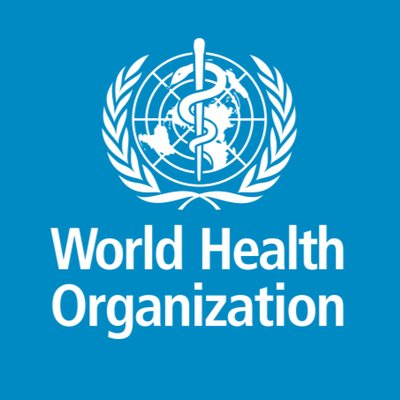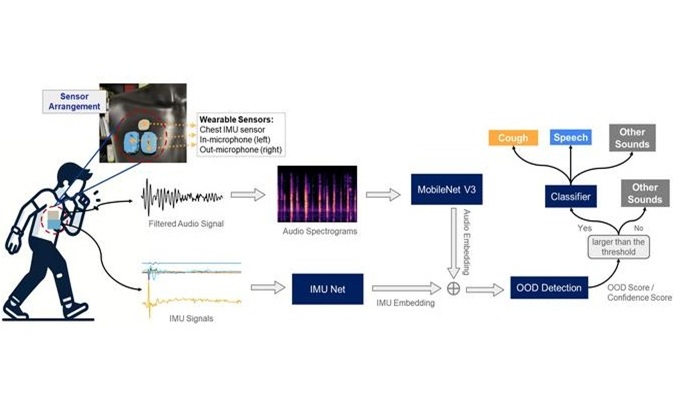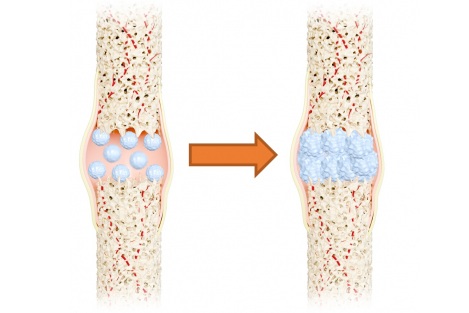No 'Silver Bullet' for COVID-19, Widespread Vaccine Distribution Unlikely To Occur For Some Time, Says WHO
|
By HospiMedica International staff writers Posted on 10 Aug 2020 |

World Health Organization
The World Health Organization (WHO Geneva, Switzerland) has warned that although a number of COVID-19 vaccines are now in Phase 3 clinical trials, no silver bullet presently exists and there may never be one.
In his opening remarks at the media briefing on COVID-19 on August 3, Tedros Adhanom Ghebreyesus, the WHO Director-General told reporters that serology studies indicated that most people remained susceptible to the coronavirus, even in areas that have experienced severe outbreaks. While progress was being made in identifying treatments that can help people with the most serious forms of COVID-19 recover, there was a need for countries to engage in the Access to COVID-19 Tools (ACT) Accelerator, participate in relevant clinical trials, and prepare for safe and effective therapeutics and vaccine introduction.
Given that several COVID-19 vaccines are now in Phase 3 clinical trials, Ghebreyesus said that the WHO was hopeful of a number of effective vaccines becoming available that can help prevent people from infection. However, he warned that there was no silver bullet at the moment and there might never be, and widespread vaccine distribution was unlikely to occur for some time.
Speaking on the WHO’s continued efforts to study the origins of the virus that causes COVID-19, Ghebreyesus informed that the WHO advance team that had travelled to China had concluded their mission to lay the groundwork for further joint efforts to identify the virus origins. As a result of these efforts, WHO and Chinese experts had drafted the Terms of Reference for the studies and program of work for an international team, led by WHO that would include leading scientists and researchers from China as well as around the world. Epidemiological studies were set to begin in Wuhan in order to identify the potential source of infection of the early cases, according to Ghebreyesus, and the evidence and hypotheses generated through the work would lay the ground for further, longer-term studies.
Related Links:
World Health Organization
In his opening remarks at the media briefing on COVID-19 on August 3, Tedros Adhanom Ghebreyesus, the WHO Director-General told reporters that serology studies indicated that most people remained susceptible to the coronavirus, even in areas that have experienced severe outbreaks. While progress was being made in identifying treatments that can help people with the most serious forms of COVID-19 recover, there was a need for countries to engage in the Access to COVID-19 Tools (ACT) Accelerator, participate in relevant clinical trials, and prepare for safe and effective therapeutics and vaccine introduction.
Given that several COVID-19 vaccines are now in Phase 3 clinical trials, Ghebreyesus said that the WHO was hopeful of a number of effective vaccines becoming available that can help prevent people from infection. However, he warned that there was no silver bullet at the moment and there might never be, and widespread vaccine distribution was unlikely to occur for some time.
Speaking on the WHO’s continued efforts to study the origins of the virus that causes COVID-19, Ghebreyesus informed that the WHO advance team that had travelled to China had concluded their mission to lay the groundwork for further joint efforts to identify the virus origins. As a result of these efforts, WHO and Chinese experts had drafted the Terms of Reference for the studies and program of work for an international team, led by WHO that would include leading scientists and researchers from China as well as around the world. Epidemiological studies were set to begin in Wuhan in order to identify the potential source of infection of the early cases, according to Ghebreyesus, and the evidence and hypotheses generated through the work would lay the ground for further, longer-term studies.
Related Links:
World Health Organization
Latest COVID-19 News
- Low-Cost System Detects SARS-CoV-2 Virus in Hospital Air Using High-Tech Bubbles
- World's First Inhalable COVID-19 Vaccine Approved in China
- COVID-19 Vaccine Patch Fights SARS-CoV-2 Variants Better than Needles
- Blood Viscosity Testing Can Predict Risk of Death in Hospitalized COVID-19 Patients
- ‘Covid Computer’ Uses AI to Detect COVID-19 from Chest CT Scans
- MRI Lung-Imaging Technique Shows Cause of Long-COVID Symptoms
- Chest CT Scans of COVID-19 Patients Could Help Distinguish Between SARS-CoV-2 Variants
- Specialized MRI Detects Lung Abnormalities in Non-Hospitalized Long COVID Patients
- AI Algorithm Identifies Hospitalized Patients at Highest Risk of Dying From COVID-19
- Sweat Sensor Detects Key Biomarkers That Provide Early Warning of COVID-19 and Flu
- Study Assesses Impact of COVID-19 on Ventilation/Perfusion Scintigraphy
- CT Imaging Study Finds Vaccination Reduces Risk of COVID-19 Associated Pulmonary Embolism
- Third Day in Hospital a ‘Tipping Point’ in Severity of COVID-19 Pneumonia
- Longer Interval Between COVID-19 Vaccines Generates Up to Nine Times as Many Antibodies
- AI Model for Monitoring COVID-19 Predicts Mortality Within First 30 Days of Admission
- AI Predicts COVID Prognosis at Near-Expert Level Based Off CT Scans
Channels
Critical Care
view channel
Origami Robots to Deliver Medicine Less Invasively and More Effectively
Delivering medicine to ulcers or other internal sites often requires invasive procedures that can disrupt surrounding tissues and lengthen recovery times. Traditional magnetic actuators used in soft robotics... Read more
Improved Cough-Detection Technology Aids Health Monitoring
Coughing serves as an important biomarker for tracking a variety of conditions and can help monitor the progress of respiratory diseases or predict when someone’s asthma is being exacerbated.... Read moreSurgical Techniques
view channel
Novel Glue Prevents Complications After Breast Cancer Surgery
Seroma and prolonged lymphorrhea are among the most common complications following axillary lymphadenectomy in breast cancer patients. These postoperative issues can delay recovery and postpone the start... Read more
Breakthrough Brain Implant Enables Safer and More Precise Drug Delivery
Delivering medication directly to specific regions of the brain has long been a major challenge in treating neurological disorders. Current implants and infusion systems typically reach only one or two... Read morePatient Care
view channel
Revolutionary Automatic IV-Line Flushing Device to Enhance Infusion Care
More than 80% of in-hospital patients receive intravenous (IV) therapy. Every dose of IV medicine delivered in a small volume (<250 mL) infusion bag should be followed by subsequent flushing to ensure... Read more
VR Training Tool Combats Contamination of Portable Medical Equipment
Healthcare-associated infections (HAIs) impact one in every 31 patients, cause nearly 100,000 deaths each year, and cost USD 28.4 billion in direct medical expenses. Notably, up to 75% of these infections... Read more
Portable Biosensor Platform to Reduce Hospital-Acquired Infections
Approximately 4 million patients in the European Union acquire healthcare-associated infections (HAIs) or nosocomial infections each year, with around 37,000 deaths directly resulting from these infections,... Read moreFirst-Of-Its-Kind Portable Germicidal Light Technology Disinfects High-Touch Clinical Surfaces in Seconds
Reducing healthcare-acquired infections (HAIs) remains a pressing issue within global healthcare systems. In the United States alone, 1.7 million patients contract HAIs annually, leading to approximately... Read moreHealth IT
view channel
Printable Molecule-Selective Nanoparticles Enable Mass Production of Wearable Biosensors
The future of medicine is likely to focus on the personalization of healthcare—understanding exactly what an individual requires and delivering the appropriate combination of nutrients, metabolites, and... Read moreBusiness
view channel
Philips and Masimo Partner to Advance Patient Monitoring Measurement Technologies
Royal Philips (Amsterdam, Netherlands) and Masimo (Irvine, California, USA) have renewed their multi-year strategic collaboration, combining Philips’ expertise in patient monitoring with Masimo’s noninvasive... Read more
B. Braun Acquires Digital Microsurgery Company True Digital Surgery
The high-end microsurgery market in neurosurgery, spine, and ENT is undergoing a significant transformation. Traditional analog microscopes are giving way to digital exoscopes, which provide improved visualization,... Read more
CMEF 2025 to Promote Holistic and High-Quality Development of Medical and Health Industry
The 92nd China International Medical Equipment Fair (CMEF 2025) Autumn Exhibition is scheduled to be held from September 26 to 29 at the China Import and Export Fair Complex (Canton Fair Complex) in Guangzhou.... Read more
















